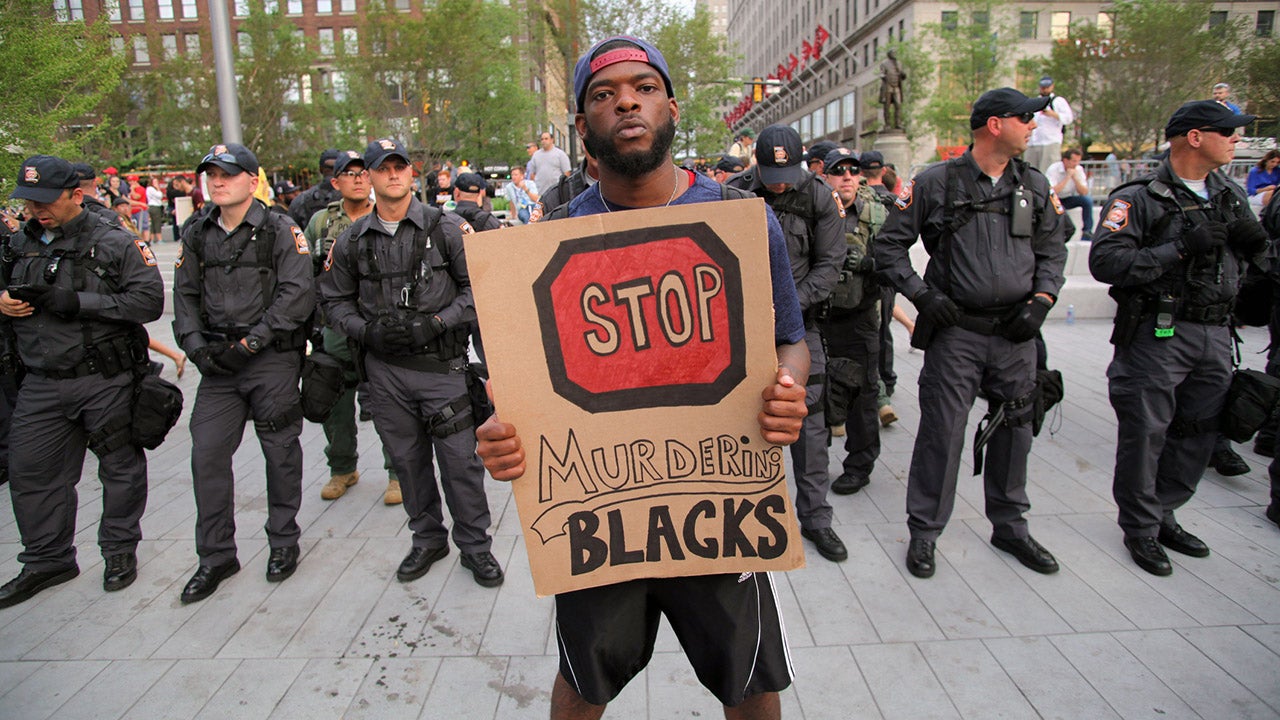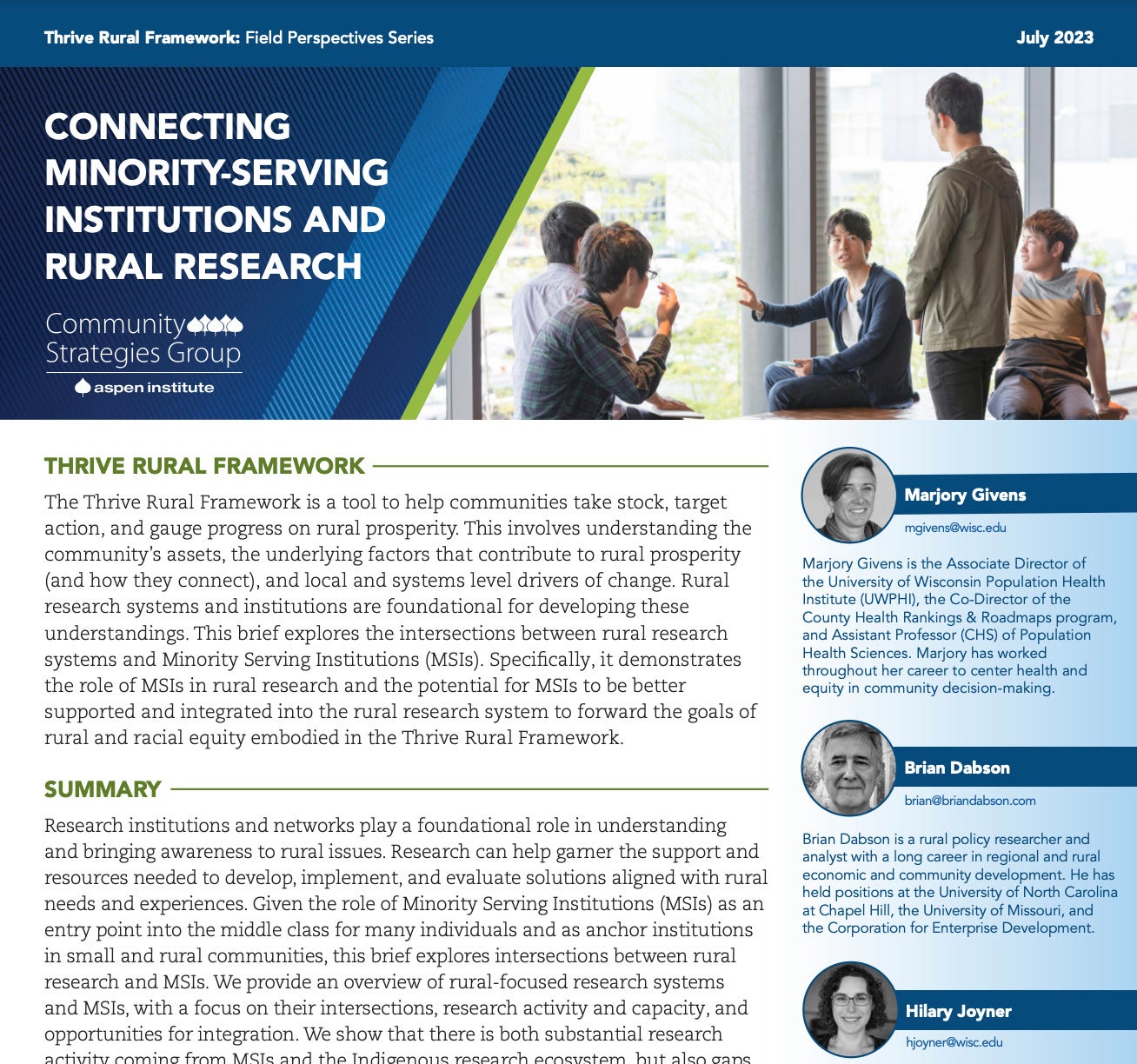For more than 150 years, Historically Black Colleges and Universities (HBCUs) have played an essential role in American education. While the nation’s 107 HBCUs make up just 3% of higher education institutions, they generate almost 20% of all Black graduates and 25% of Black graduates in STEM fields. At the same time, HBCUs have long struggled for sufficient resources with endowments that are at least 70% smaller than non-HBCUs.
Virgil Parker, a senior at Howard University and former William Randolph Hearst fellow of the Program on Philanthropy and Social Innovation, is a panelist on The Future of Historically Black Colleges and Universities in the COVID-19 Era. This three-part discussion will be hosted by the Aspen Partnership for an Inclusive Economy, the College Excellence Program, and Weave: The Social Fabric Project. Parker also compiled this guide to the history, mission, and ongoing importance of HBCUs.
“Howard embodied a warm, loving, and empowering atmosphere that instantly made me want to be a part of it,” he said. “I had very few African American teachers until I attended an HBCU.”
Yet Parker felt that the most important part of his HBCU experienced happened outside of the classroom. “HBCUs are cultural epicenters and safe havens where students from around the world can freely blend and express their customs,” he said, noting how geographically diverse institutions like Howard are. “Many people who are unfamiliar with HBCUs believe that these institutions are exclusively for Black students… [but] these institutions have welcomed students from all communities and cultures.”
The Significance of HBCUs: What You Need to Know
Organizations:
The United Negro College Fund (UNCF)
Since 1944, the UNCF has raised more than $5 billion and helped more than 500,000 students to complete college. The organization awards more than $100 million in scholarships annually, supporting more than 10,000 students, and provides financial support to 37 HBCUs.
National Association for Equal Opportunity in Higher Education (NAFEO)
NAFEO was founded in 1969 to provide an international voice for the nation’s HBCUs, to promote equal opportunity in higher education, and to advocate for policies, programs, and practices designed to preserve and enhance HBCUs—and to increase participation of Blacks throughout higher education.
The White House Initiative on HBCUs
In 1980, President Jimmy Carter signed Executive Order 12232—known colloquially as The Initiative—establishing a federal program to overcome the effects of discriminatory treatment in higher education and strengthen historically black colleges. Presidents Ronald Reagan, George Bush, Bill Clinton, and George W. Bush expanded and strengthened the Initiative with executive orders during their terms.
The Thurgood Marshall College Fund (TMCF)
Established in 1987, TMCF is the nation’s largest organization exclusively representing the Black College Community. TMCF has awarded more than $300 million in assistance to member-schools, including student assistance before, during, and after college.
Books:
America’s Historically Black Colleges and Universities: A Narrative History, 1837-2009, Bobby L. Lovett
Lovett provides a comprehensive history of America’s HBCUs, examining how race, the Civil Rights movements, and black and white philanthropy affected the development of minority institutions.
HBCU Pride: The Transformational Power of Historically Black Colleges and Universities, Shafeeq Ameen
This book addresses the next generation of African American students, encouraging them to view HBCUs as viable academic options. It includes testimonials from notable HBCU alumni in entertainment and business.
I’ll Find a Way or Make One: A Tribute to Historically Black Colleges and Universities, Dwayne Ashley, Juan Williams, and Adrienne Ingrum
This comprehensive guide explores the historical, social, and cultural importance of America’s HBCUs, and highlights HBCUs graduates who have risen to prominence.
Black Colleges Across the Diaspora: Global Perspectives on Race and Stratification in Postsecondary Education, M. Christopher Brown II and T. Elon Dancy II, eds.
This collection examines majority-Black colleges and universities across the diaspora, addressing issues of racial, economic, and gender diversity, as well as the impact of Black marginalization created through global racialization.
Historically Black Colleges and Universities: Their Place in American Higher Education, Julian B. Roebuck and Komanduri S. Murty
This academic work examines HBCUs as a vital national resource, with a data-rich exploration of 15 colleges of both historically Black and white majority student bodies. In the process, it broadens the nation’s conversation on race relations in higher education.
Film:
This PBS documentary discusses the history of HBCUs from before the end of slavery and highlights the essential role these institutions have played in shaping Black life, creating a Black middle class, and dismantling segregation. View the documentary here.
Reports:
HBCUs Make America Strong: The Positive Economic Impact of the Nation’s Historically Black Colleges and Universities, UNCF and Terry College of Business, The University of Georgia
This UNCF fact sheet provides an overview of the positive economic impact of HBCUs on the nation and is corroborated by two reports more detailed reports. View the extended report here or the technical report here.
Public and Private Investments and Divestments in Historically Black Colleges and Universities, Krystal L. Williams and BreAnna L. Davis
This report shares detail about the significance of HBCUs and how funding affects their success. The report is supported by the UNCF and the American Council on Education.
HBCUs Punching Above Their Weight: A State-Level Analysis of Historically Black College and University Enrollment Graduation, K.M Saunders and B.T. Nagle
Taking a localized approach, this UNCF report examines the success of HBCUs in enrolling and graduating college students at a rate that outstrips the colleges’ sizes and resources.
The Changing Face of Historically Black Colleges and Universities, Marybeth Gasman
This report from the University of Pennsylvania’s Graduate School of Education explores the potential of HBCUs as the country’s demographics shift.
Fewer Resources, More Debt: Loan Debt Burdens Students at Historically Black Colleges and Universities, Katherine M. Saunders, Krystal L. Williams, and Cheryl L. Smith
This UNCF report examines the distribution and financial impact of student loan debt among HBCU students relative to their non-HBCU peers.
Preserving The Legacy And Securing The Future For HBCUs: Solutions from Thought Leaders, The Thurgood Marshall College Fund and Harry L. Williams
This report is about creating sustainability within the HBCU community. Authored by the Thurgood Marshall College Fund’s President and CEO, Harry L. Williams, it shares options to help preserve the legacy and secure the future of HBCUs.


